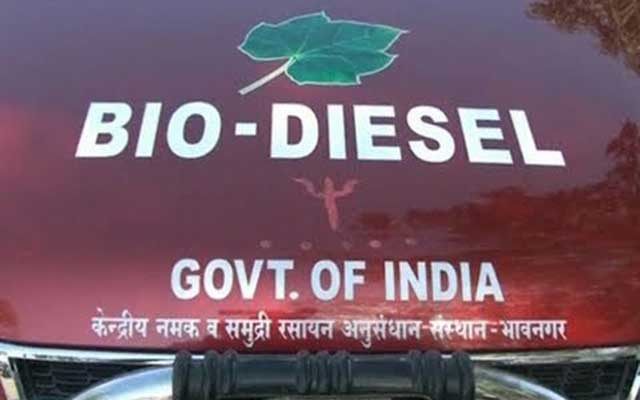Indian automakers could begin development of engines that run exclusively on bio-diesel. A notification issued by the ministry of road transport and highways could pave the way for the development.
According to the notification, which has been sent to the law ministry for vetting, the government plans to allow rollout of 100 percent bio-diesel based vehicles.
Under the proposed law, the to-be-developed bio-diesel run vehicles should be fitted with compression ignition engines that can run on 100 percent diesel, a diesel–bio-diesel mixture or 100 percent bio-diesel (B100). The approval for the type will be based on prevailing diesel emission standards.
Also, the draft proposes to mandate that vehicle manufacturers will have to define the compatibility of their vehicles to the bio-diesel blend. They will be required to display such information on the vehicle.
Agencies specified by the government will be entrusted with approval of the type of vehicle, the notification says.
Recently, San Francisco municipality had announced that its entire fleet of buses will be switched to bio-diesel by end of the year.
The switch is expected to help reduce the greenhouse emissions from the entire fleet by more than 60 percent.
For about six years, San Francisco has been working to adopt cleaner energy solutions. It had adopted the B20 blend of bio-diesel, which is 20 percent biodiesel and 80 percent petroleum diesel. Most vehicles in the municipal fleet run on B20.
India has the potential to develop significant quantities of bio-diesel as vast swathes of unarable land can be utilized to cultivate crops that are suited to produce bio-diesel.
The country has already developed technologies that are B100 compatible. In 2007, Mahindra and Mahindra had unveiled a Scorpio with indigenous CRDE technology which was the first Asian vehicle in its class to run on B100.
Last month the government of India had advised the Maharashtra government to convert to bio-fuel based buses. The proposal was part of the green bus initiative of the government.
Maharashtra had been running a pilot operation in Nagpur for such buses since last year.
The government of India proposes to accelerate the cultivation of biofuel-yielding crops and promote its use in both transport and stationary applications.
By one estimate India has demand for 33 metric tonnes of biofuel annually. Production and consumption, however, has been limited to 0.11 metric tonnes from 2009 to 2014.
However, there have been divergent views on promotion of cultivation of crops for biofuel production. Although bio-diesel is able to reduce emissions they are not entirely emissions free.
The technology can help reduce costs but the solution to bring down emissions is through reduction of the number of vehicles plying on roads, experts say.
Ajith Kumar S
editor@greentechlead.com

